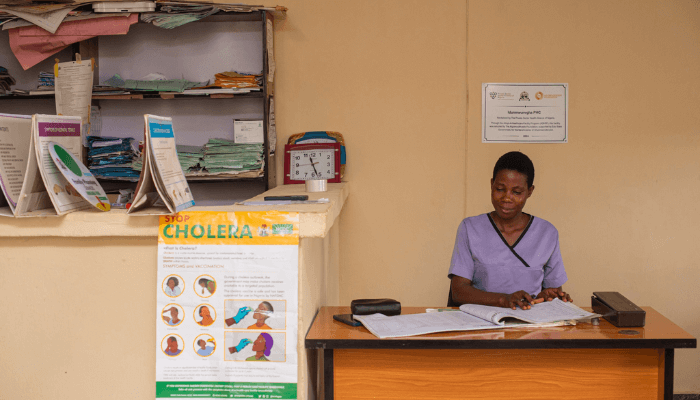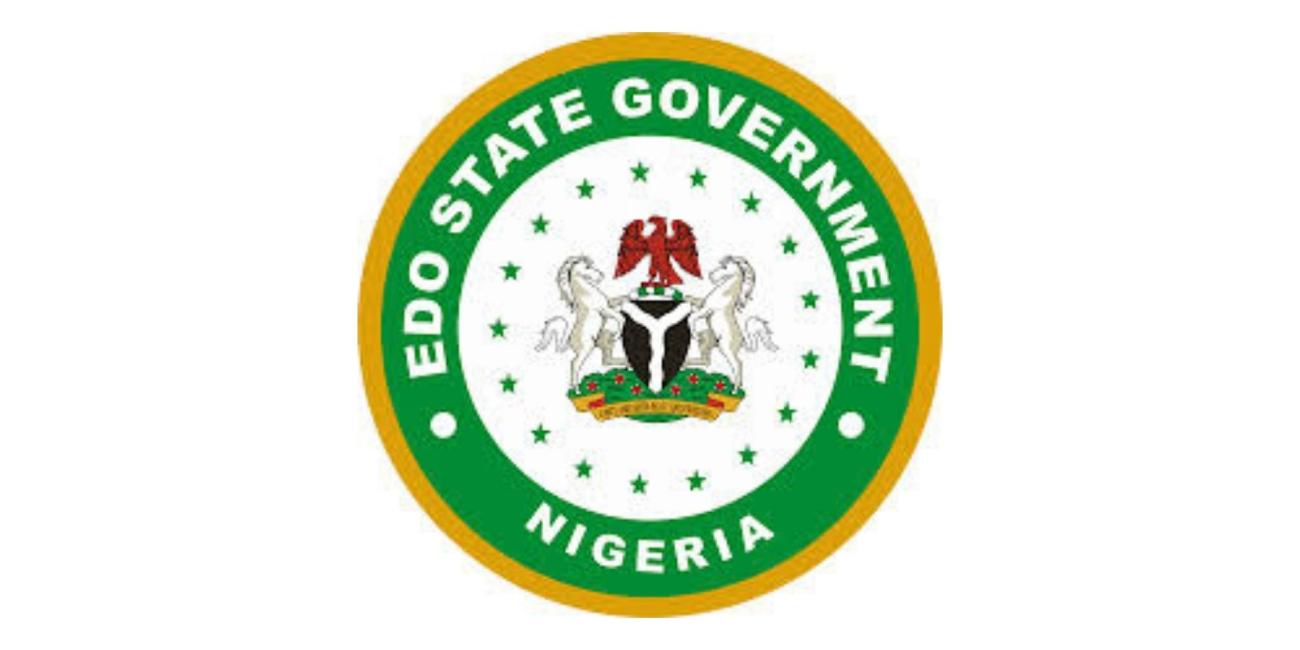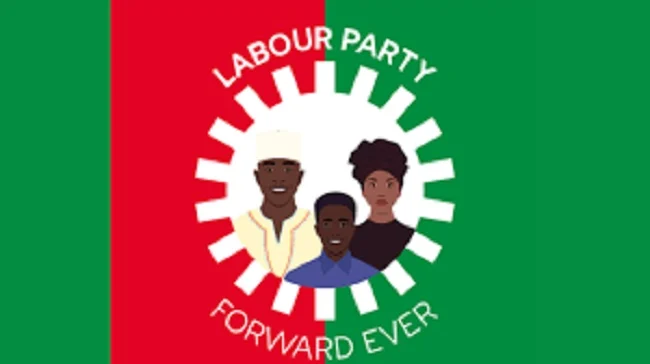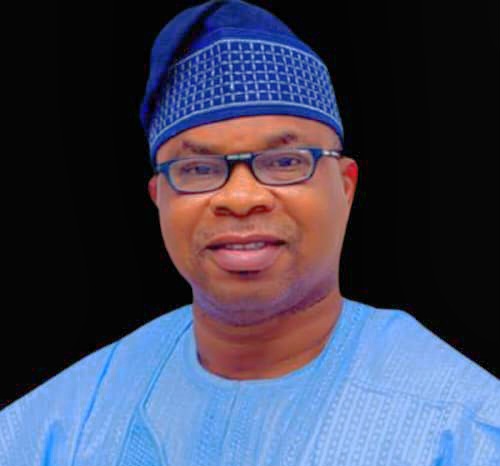Opinion
Mobilising Community Participation To Strengthen PHC Delivery

Community participation is a cornerstone of effective primary healthcare delivery. By actively involving communities in health planning and implementation, we can create more responsive and sustainable healthcare systems that truly meet the needs of the people. The Alma-Ata Declaration, adopted in 1978 at the International Conference on Primary Health Care (PHC) in Alma-Ata (now Almaty, Kazakhstan), was a landmark global health policy that emphasised Primary Health Care as the key to achieving “Health for All” by the year 2000. Key highlights of the declaration are:
· recognises health as a fundamental human right,
· defined Primary Health Care (PHC) as essential, community-based, and universally accessible healthcare,
· stressed importance of intersectoral collaboration, including education, agriculture, and social services, in achieving health goals,
· called for government action, international cooperation, and community participation in strengthening PHC.
The 1978 declaration underscored that health care should be accessible, affordable, and involve the community in planning and implementation.
Specifically, VII.5 of the declaration states that “primary health care requires and promotes maximum community and individual self-reliance and participation in the planning, organisation, operation and control of primary health care, making fullest use of local, national and other available resources; and to this end develops through appropriate education the ability of communities to participate.” This.” Thisately aims to create more effective, sustainable, and culturally appropriate health care delivery systems.
The World Health Organisation (WHO) defines community participation “as a process by which people are enabled to become actively and genuinely involved in defining the issues of concern to them, in making decisions about factors that affect their lives, in formulating and implementing policies, in planning, developing and delivering services and in taking action to achieve change.” In Nigeria, the Nigerian National Health Policy and the Sustainable Community Engagement Strategy highlight the importance of community participation in PHC delivery. These documents outline strategies that support communities in health planning, management, and monitoring.
Over the years, the Nigerian government has continued to design impactful community programmes aimed at strengthening primary health-care delivery in the country. Examples of these include:
· The Community Health Workers (CHWs) Program (1978 – present): This initiative was introduced to bridge the gap in healthcare provision, particularly in rural and underserved areas. Community Health Workers (CHWs) were trained to provide basic health services, conduct health education and immunisations, and help manage common diseases, including malaria, diarrhoea, and respiratory infections. Community engagement with CHWs has resulted in a 50 percent increase in family planning service uptake and expanded access to other primary health care services, including maternal and child health services, and chronic disease management.
· Community Influencers, Promoters, and Services (CHIPS) Program (2018 – Present): The CHIPS Programme focuses on enhancing community health participation by training community health influencers and promoters to deliver health education, promote healthy behaviours, and assist communities to access essential health services. CHIPS workers, often members of the local communities, are deployed to engage with the communities, conduct health outreaches, facilitate health campaigns, and promote family planning, immunisations, and maternal health. CHIPS agents have effectively promoted healthy behaviours and facilitated access to essential health services, leading to improved health indicators.
· COVID-19 Community Response and Health Education (2020 – 2022): In Nigeria’s response to the COVID-19 pandemic, community participation played a vital role in the public health response. Community health workers (CHWs) were mobilised to provide health education, assist in contact tracing, and distribute COVID-19 preventive materials. Local community leaders, religious groups, and influencers helped spread vital information regarding the COVID-19 pandemic, including safety measures like mask-wearing, social distancing, and hand hygiene.
· Strengthening Community Engagement and Accountability for PHC (SCEAP) Project (2021 – present): Implemented by BudgIT Foundation with support from the Bill and Melinda Gates Foundation (BMGF), this project aims to improve primary healthcare delivery through community-led advocacy and monitoring, and empowering community actors to promote transparency and improve healthcare facilities and services.
The collaborative partnership between the community-based organisations, stakeholders, village heads/representatives, WDCs, women leaders, facility in-charges, and community members has proven instrumental in addressing healthcare challenges and enhancing service delivery. There is also an increase in service utilisation at the PHCs, which is evident in increased patient turnouts that have been observed since the start of SCEAP, with a 55 percent increase in the number of participants visiting the PHCs weekly and a 30 percent increase in the monthly visits to the facilities. Additionally, there has been a 70 percent increase in outpatient consultation and antenatal care services in most facilities.
· Ward Development Committees (WDCs) and Village Development Committees (VDCs) (2001): were created as community structures to support planning and monitoring of health care services. These community structures have facilitated community involvement in healthcare decision-making, leading to more tailored and accepted health interventions, and enhanced monitoring of health services, which has contributed to improved accountability and service delivery.
. Basic Healthcare Provision Fund (BHCPF) (2019 – present): This is a funding mechanism designed to provide financial support to primary healthcare centres across Nigeria. It aims to improve the quality and accessibility of PHC services by ensuring adequate funding for essential health services, including immunisation, maternal and child health, and disease surveillance.
The establishment of the BHCPF has enhanced accountability in fund utilisation, thereby improving the management and delivery of PHC services. The BHCPF has also improved access to basic healthcare services, especially for vulnerable groups such as women of childbearing age and children under five years of age. A study found that most patients (98.2%) were satisfied with service delivery, which influenced patient utilisation of PHC facilities.
The Aig-Imoukhuede Foundation recognises the critical roles that community structures like the CHIPS and WDCs play to ensure effective delivery of PHC to communities. As a result, we are taking clear steps to support government interventions and improve community participation for PHCs through our Adopt-a-Health Facility Programme (ADHFP), which aims to strengthen PHC systems, improve service delivery, and enhance community engagement.
These steps include:
1. Providing periodically structured training programmes to WDC members to strengthen their leadership and governance capacities.
2. Support existing structures for multi-stakeholder review and engagement meetings between WDCs, local government health authorities, and community stakeholders.
3. Strengthen mechanisms between communities, WDCs and PHC workers.
4. Advocatetee private sector involvement in strengthening community structures to improve PHC.
By strengthening community-based structures like the WDCs to improve primary healthcare service delivery, we envisage:
1. WDCs will be better equipped to co-design, track progress, and monitor the implementation of programme work plans, mobilise resources for community initiatives, and oversee the activities of community health workers. This will improve transparency and oversight and can lead to better outcomes at PHCs.
2. These activities will engender a culture of continuous improvement because community concerns and health priorities can be addressed promptly, improving service delivery and patient experience.
3. Trust between communities and healthcare workers will be improved, and this can lead to an increase in service utilisation.
4. Funding and resource availability for healthcare programmes is expanded as community members can advocate and raise funds for primary health programmes.
Businessday.ng
Opinion
Edo State To Spend N1billion On Armoured Car For Speaker, N4.6billion On Vehicles For Lawmakers

The budget also reveals that N4.6 billion is planned for vehicles for the 25 members of the State House of Assembly.
Reporters’ review of the Edo State approved budget for 2026 shows that N1billion has been allocated to purchase an armoured vehicle for the Speaker of the State House of Assembly.
The budget also reveals that N4.6 billion is planned for vehicles for the 25 members of the State House of Assembly.
Also, N50million is planned for the purchase of refrigerators and other equipment for four directors. The House of Assembly Commission also plans to spend 200 million naira on roof and window replacement for its office building.
Earlier, a civic accountability group, MonITng, raised concerns over the execution of a multi-million-naira education project in Edo State, citing poor quality, procurement irregularities, and a recurring pattern of questionable contract awards.
“A project titled ‘Building of Blocks of Classrooms at Ojah Comprehensive High School, Akoko LGA, Edo State’ with project code ZIP20240448, valued at ₦222,000,000.00, and awarded under the Federal Polytechnic Auchi, Federal Ministry of Education, has raised serious concerns about the quality of execution, contract pricing, and procurement integrity.”
According to MonITng, its team tracked and inspected the project site. “Our team tracked and visited the project site and confirmed that although the classrooms were completed, they were poorly constructed.”
The group further noted: “The structure lacks basic finishing elements such as landscaping, proper drainage, and standard finishing works, all of which should have been included and adequately executed, given the huge sum budgeted for the project.”
It added that “the poor quality of work raises questions about project supervision, contract oversight, and how the allocated funds were spent.”
MonITng also linked the project to a contractor allegedly tied to multiple controversial contracts. “Even more troubling is the pattern we uncovered. The project was executed by Sam Sedi Nig. LTD, a company that has consistently received major contracts facilitated by Senator Adams Oshiomhole.”
The group claimed that “this same contractor handled the abandoned ERGP20245252 project, Construction of Warake to Ivbiaro Road in Owan East LGA, valued at ₦200,000,000.00, which remains incomplete despite significant disbursements.”
“Additionally, the same company implemented a controversial agricultural empowerment programme in Etsako communities, also facilitated by Senator Oshiomhole.”
MonITng alleged that “the recurring involvement of this contractor in multiple projects, combined with substandard delivery and abandoned works, suggests a pattern of procurement manipulation, inflated contracts, and possible diversion of public resources.”
It added that “the situation reflects how public projects, although completed on paper, often fail to deliver a meaningful impact due to corruption, poor supervision, and a lack of accountability.”
Opinion
APC E-registration Plot To Manipulate 2027 Polls – Ogun LP

The Ogun State chapter of the Labour Party has accused the All Progressives Congress of using its ongoing electronic membership registration to allegedly manipulate figures ahead of the 2027 general elections.
In a statement issued on Wednesday, the state chairman of the Labour Party, Chief Oluwabukola Soyoye, claimed that the APC’s e-registration exercise was designed to digitally inflate its membership strength and project a false image of popularity in the state.
Soyoye alleged that the ruling party had resorted to electronic registration because it could no longer mobilise people openly, insisting that the administration of Governor Dapo Abiodun had suffered widespread rejection due to what he described as underperformance.
According to him, the APC’s e-registration, presented as a routine membership drive, was in reality “a political referendum that exposes the deep rejection of Governor Dapo Abiodun and his black-market style of governance by the people of Ogun State.
“The people of Ogun are now wiser. They have deliberately refused to participate in any open, physical APC registration because they know the ruling party has failed them,” Soyoye said.
“That is why the APC has resorted to this so-called electronic registration — a system that allows figures to be fabricated behind closed doors without the presence of real members.”
The LP further alleged that the electronic platform could be used to manipulate membership data, inflate figures and create a misleading narrative of political dominance ahead of 2027
“What we are witnessing is not a genuine political exercise but a fraudulent digital operation designed to manufacture legitimacy for a government that has lost the confidence of the people,” Soyoye added.
Opinion
Let These Campaigns Of Calumny Against AMBO Stop Forthwith

By Kola Odepeju
“Calumny Is Only The Noise Of Madmen” –Diogenes
As Osun state gubernatorial election draws nearer, we’re now at the dawn of the campaigns for the coming election and so as characteristic of Nigeria’s democracy, wrong accusations, blackmails, character assassinations and all manner of negative campaigns aimed at demarketing the most popular candidate with the highest chances of coasting home to victory in a major election of this nature, must surface. And so in our own dear Osun state here this ugly trend has started surfacing. The mudslinging that has started from Governor Ademola Adeleke’s Accord Party’s camp against the APC gubernatorial candidate, Asiwaju Munirudeen Bola Oyebamiji AMBO is ‘normal’ and expected because with the massive support for AMBO across the nook and cranny of the state, it’s crystal clear that he’s the candidate to beat.
As mentioned above, a candidate to beat in any major election is bound to face vilifications by his opponents who see him as a threat and a stumbling block against the success of their own ambitions. Therefore given the nature of our politics in this part of the world, the negative campaigns that have started against AMBO are no surprise. We witnessed the same thing against the incumbent president, Asiwaju Bola Tinubu during the 2023 electioneering campaigns for the office of the country’s president. But against all odds, Asiwaju Tinubu emerged victorious. So as Asiwaju Tinubu emerged victorious in 2023, l have that strong conviction that our own Asiwaju Bola Oyebamiji will also become victorious in the coming August gubernatorial election in the state irrespective of whatever negative campaigns that may come up against him. This is because the AMBO governorship project is divinely ordained.
Amongst other attacks that are still likely to come up against him as we face the election and as the election faces us, we have heard from those who are afraid of losing power that AMBO is the architect of half salaries in Osun (as if he was the governor in that era). We have also heard from them that he’s not youth-friendly. The spokesperson to governor Adeleke, Malam Olawale Rasheed also amplified these two negative points in his latest article aimed at demarketing AMBO. Like I mentioned, the negative campaigns have just started. We are still going to hear more. I wonder why people cannot engage in issues-based campaigns instead of vilifying candidates.
Ambo has told Osun youths the program he has for them. He has promised to take care of them. And as a God-fearing and honest leader who keeps to his words, l believe he will not renege on his promise for the youths and also his promises for Osun people generally. So let those who revel in vilifying a credible candidate like AMBO tell Osun youths the programs they have for them rather than calumniating a visionary and capable leader who has what it takes to deliver the goods. Of course AMBO – being a focused leader – needs not to bother himself about the negative campaigns being circulated against him by his political detractors because William Shakespeare had for long told us that “*Be thou as chaste as ice, and as pure as snow, thou shall not escape calumny*”. And George Washington also mentioned it that “*Silence is the best answer to false accusations*”.
Finally, the Yorubas in their words do say that “maligning the honey doesn’t reduce its sweetness”. No matter the level of negative campaigns against the APC gubernatorial candidate towards the election, it won’t reduce the love the Osun people have for him while it won’t deter them from casting their votes for him in the upcoming gubernatorial election in the state. He will surely come out victorious by the special Grace of God Almighty 🙏. For, Vox populi vox dei. AMBO should continue on the path of issues-based campaigns and close his eyes against malignant talks by those who are already on their way out of power.
● Odepeju, newspaper columnist and political activist, writes from Iragbiji, Osun state.
-

 Politics2 days ago
Politics2 days agoAssembly Confirms Popular Redeemed Pastor As Deputy Governor
-

 Foreign2 days ago
Foreign2 days agoCabinet Reshuffle: President Sacks Finance Minister
-

 Business2 days ago
Business2 days agoJUST IN: 13 Banks May Shut Down In March As CBN Confirms 20 Safe For Recapitalisation Deadline
-

 Politics9 hours ago
Politics9 hours agoBREAKING: “Serial Disrespect” Sparks Drama As Senate Order Arrest Of Tinubu’s Appointee
-

 Politics10 hours ago
Politics10 hours agoOpposition Leaders Urge N’Assembly To Begin Fresh Electoral Act Amendment
-

 Opinion9 hours ago
Opinion9 hours agoEdo State To Spend N1billion On Armoured Car For Speaker, N4.6billion On Vehicles For Lawmakers




